This is why your fridge smells—and how to clean it
How to stop the stink in its tracks
Products are chosen independently by our editors. Purchases made through our links may earn us a commission.
You know what game I never want to play? Find that smell. It never ends well, especially when the smell is coming from your fridge. I've spent years working in an appliance lab, and I've seen some fridge disasters in my day. However, every disaster that came my way became an opportunity to test out a new solution.
The stink of microbes
The long and short answer is that bacteria and molds cause the foul odors coming from your fridge. These menacing microbes thrive in areas that have moisture. That moisture can come from spilled food, condensation from the fridge, and humidity from the outside. Once moisture gets in, microbes will start to multiply, taking over any space they can get a foothold. When they reach a critical mass, you can start to detect their presence via their smell.
Now you know what causes odors in your fridge, and knowing is half the battle–but not the whole thing.
How to get rid of the smell
Let's start with the simplest things to do work our way down to the most labor intensive. We'll begin with something as easy as a flick of your wrist.
Step 1: Lower the temperature
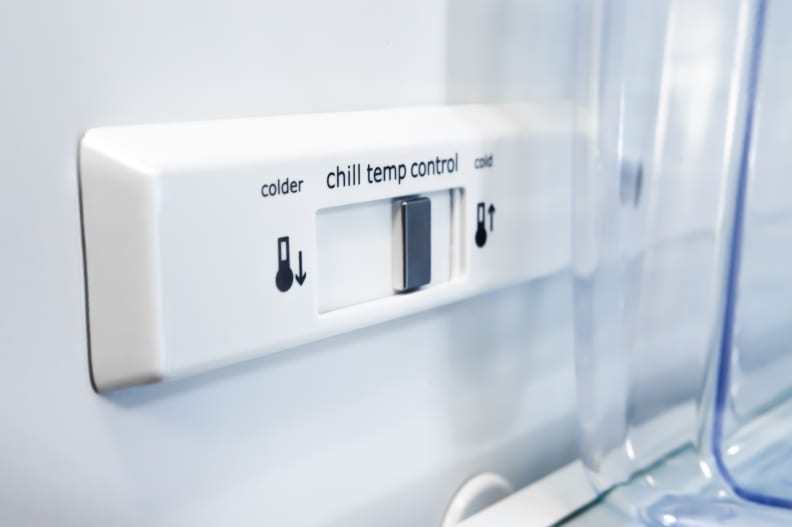
Sometimes just lowering your fridge's temperature will get rid of odors.
Turning down the temperature is probably simplest solution. Optimally, your fridge should be between 35°F and 37°F. If you live in a very humid place, the recommended settings might not be enough to stave off the build up of moisture.
If you don't have a thermometer in your fridge, you can pick up a decent one on Amazon for cheap.
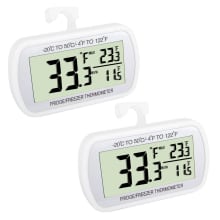
These thermometers can help you make sure your fridge and freezer temperatures are perfect.
Step 2: Check the door first, then elsewhere
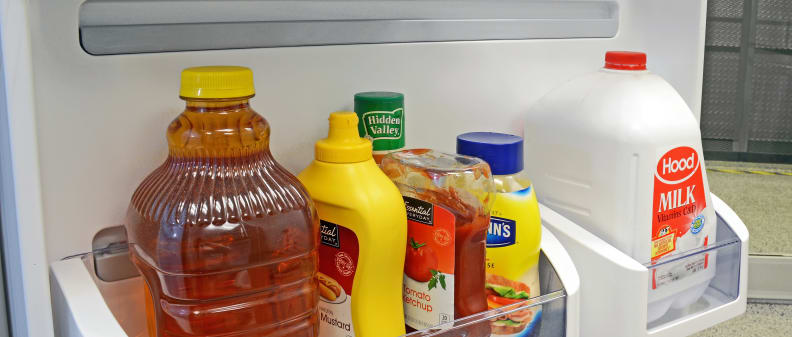
When looking for spoiled food, check the stuff on the door first.
As common sense as it may be, people tend to forget that food on the door spoils fastest. So even though the expiration date might be weeks away, milk, eggs, and other foodstuffs may already be a feast for germs. After the door, work your way to the back of the fridge, sniffing and peeking at all your past purchases.
Step 3: Get some chemical assistance
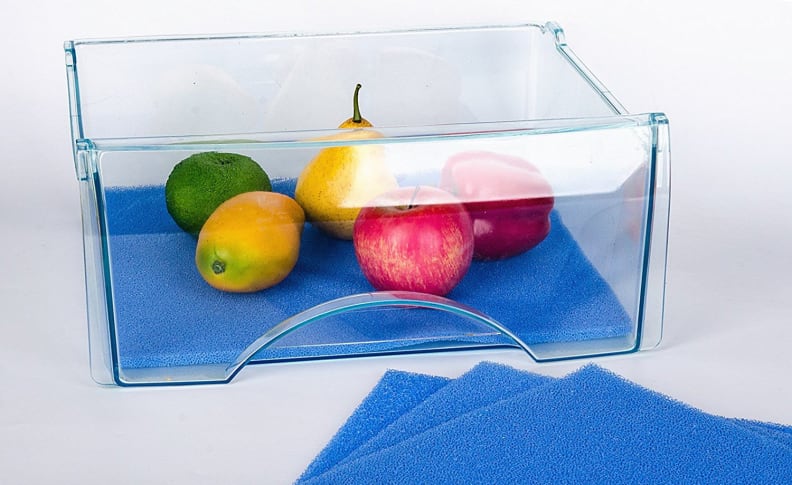
Silica mats can help absorb excess moisture from produce.
Silica mats can keep odors away by preventing premature produce rot. They're inexpensive (under $15 on Amazon) and fit inside your crisper drawer.
You can also try placing a dish of something odor absorbent on a shelf. Baking soda is probably the most popular, however coffee grounds and charcoal can be used too. If even this does not work, then it's time to attack the source.
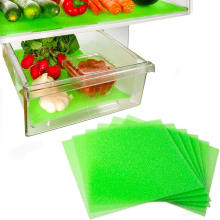
Keep your fruits and veggies dry and fresh with liners like these.
Step 4: The deep clean
Much of the time, the solution may come down to a little elbow grease. If your fridge still smells after steps 1-3, it's time to start clearing out the fridge. Get a cooler, stuff all your food in it with some ice, and get cleaning.
Lots of fridges these days have spill-proof shelves. While they keep small spills from becoming big messes, where the glass meets the plastic is the perfect place for odor-causing bacteria to hide. With your disinfectant of choice, I'd start going at these areas first.
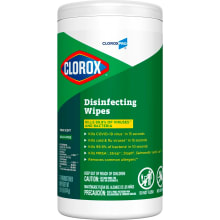
Keep your fridge's nooks and crannies clean with disinfecting wipes.
A.C. (After Cleaning)
If even after cleaning, the smell persists, then it may be time to make that dreaded service call. The bad smell could be coming from the drip pan underneath the fridge. Sometimes a damaged or used up water filter can emit odors. It could even be a buildup inside the fridge's drainage system. Either way, you should find out if it's something major.


